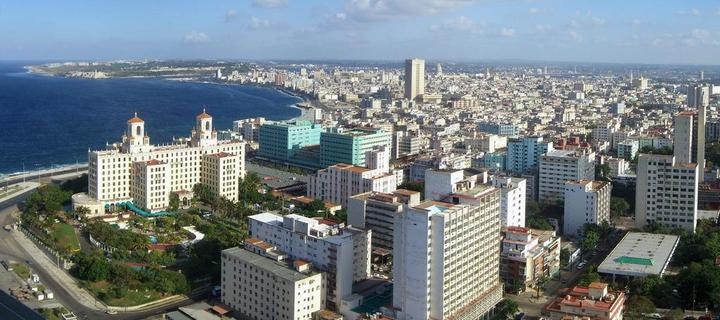Havana was the sixth town founded by the Spanish Crown in Cuba island, called San Cristóbal de La Habana, perhaps because he was the patron saint of sailors, and Havana, as indigenous place names.
In the Plaza de Armas in the colonial era was the center of the official and public life of the city, a monument called The Temple, which commemorates the founding of the town in 1519 stands there.
Havana resurfaced repeatedly rubble and ash that occasionally reduced pirates and French privateers during the first half of the sixteenth century, until in 1561 the Crown has the city wherever the concentration of ships Spanish from the American colonies before leaving for the ocean crossing, so military defenses are built at the entrance of Havana Bay and at strategic sites manage to make it the best defended city in the New World.
El Faro, near the castle of the Tres Reyes del Morro, has become the symbol of Havana, the capital of all Cubans. During the seventeenth century the city is enhanced by civil and religious monumental constructions.
Havana is a city with a rich cultural life. His dozens of museums develop themes ranging from art and colonial architecture, decorative arts, fine arts to the history of Cuba and the revolutionary struggles of the Cuban people, to specific topics such as music, ballet, Afro Cuban religions , rum, snuff, goldsmithing and archeology of the city.
Theaters, cinemas and concert halls of this city offer a varied program of high quality as well as nightclubs and cabaret where the most important Cuban musicians are presented. Havana is host to prestigious international film festivals, ballet, theater, guitar and jazz among other genres.



